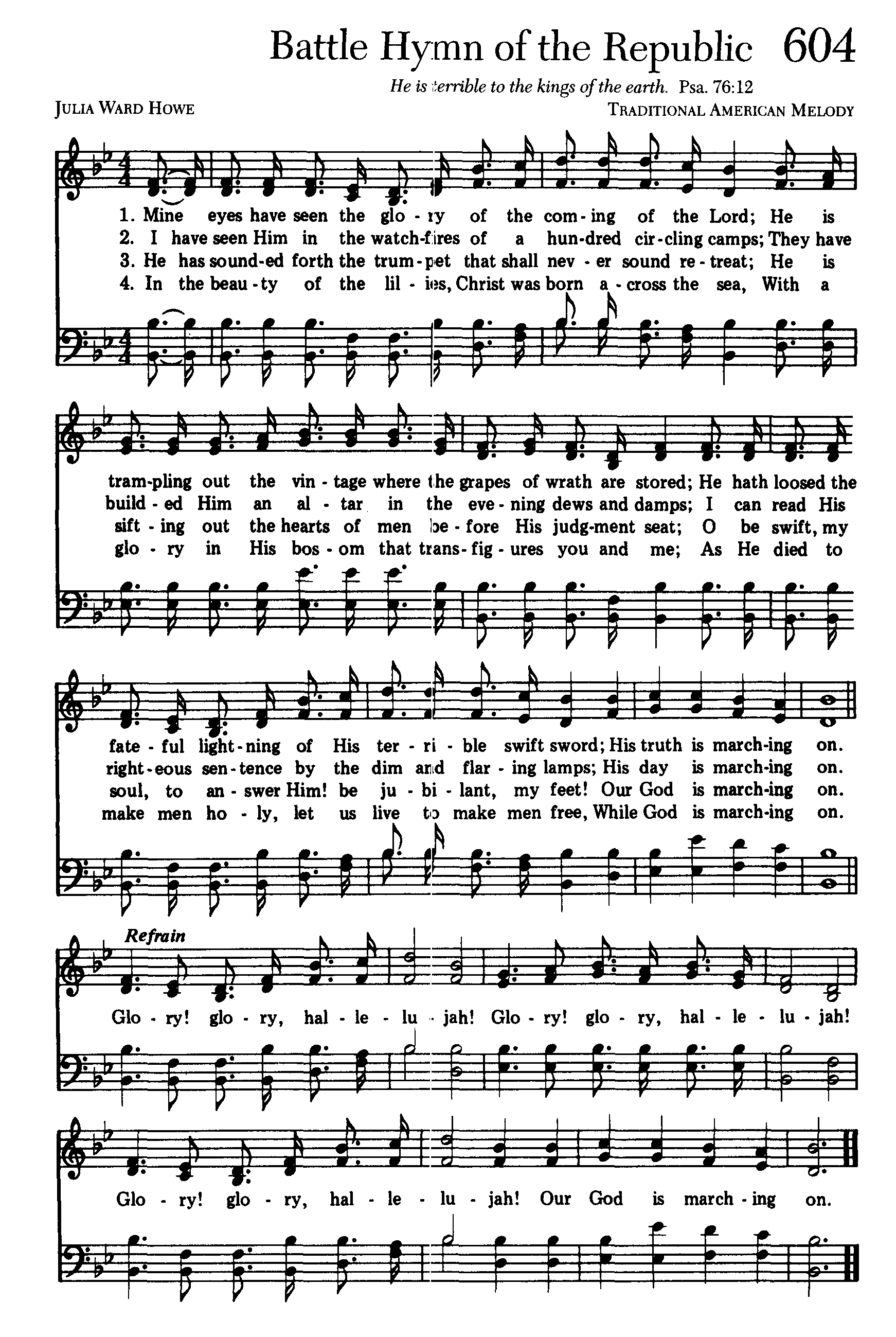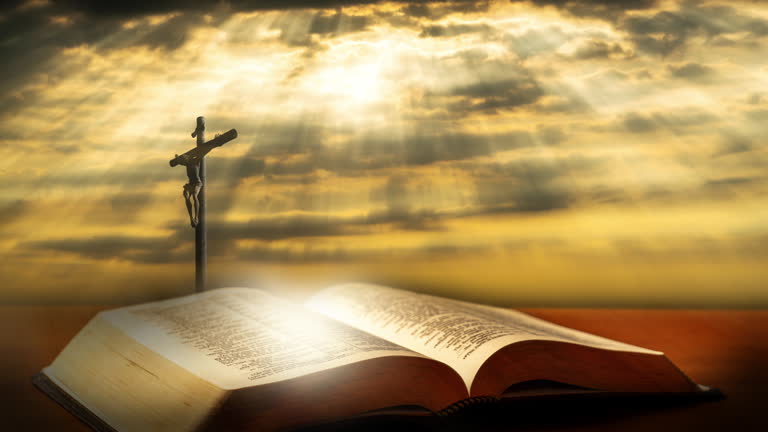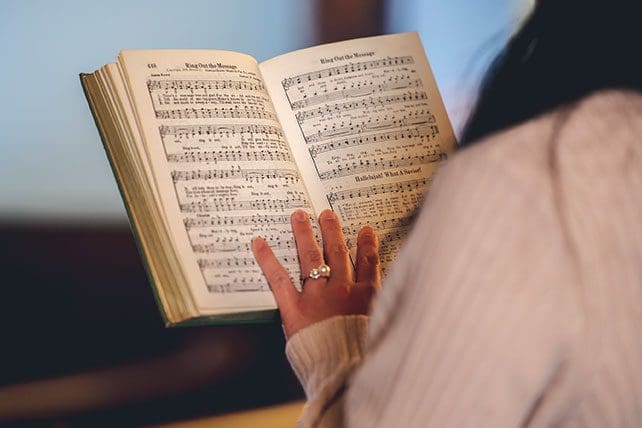Battle Hymn of the Republic
Lyrics
He is trampling out the vintage where the grapes of wrath are stored;
He hath loosed the fateful lightning of zhis terrible swift sword;
His truth is marching on.
Glory! Glory! Hallelujah!
Glory! Glory! Hallelujah!
Glory! Glory! Hallelujah!
His truth is marching on.
They have builded Him an altar in the evening dews and damps;
I can read the righteous sentence by the dim and flaring lamps;
His day is marching on.
He is sifting out the hearts of all before His judgment seat;
O be swift, my soul, to answer Him; be jubilant, my feet!
Our God is marching on.
With a glory in His bosom that transfigures you and me;
As He died to make us holy, let us die to make men free,
while God is marching on.
Bible Reference
Psalm 20:7
About This Hymn
Text: Julia Ward Howe (1819–1910)
Tune: American camp meeting melody, commonly known as “John Brown’s Body”
First Published: The Atlantic Monthly, February 1862
Music has always possessed a remarkable ability to stir the soul, particularly in evoking deep feelings of patriotism. Among America’s national hymns, The Battle Hymn of the Republic stands apart as an unrivaled anthem of national resolve, hope, and spiritual fervor. It has inspired generations through times of war and peace, uniting citizens in common purpose and reverence.
The hymn’s origin dates to the early days of the American Civil War. Its words were first published in the February 1862 issue of The Atlantic Monthly and labeled the “Battle Song of the Republic.” The author, Julia Ward Howe, received just five dollars for her contribution—an amount that did not reflect the lasting value of her work. At the time, she and her husband, Dr. Samuel Gridley Howe, a prominent physician and humanitarian, had relocated from Boston to Washington, D.C., where he had taken up service with the federal government. Julia was deeply affected by the rising tension and violence between the North and South. From her home, she often saw troops march past, many of them singing the popular but coarse war song “John Brown’s Body,” named for the controversial abolitionist who had been executed in 1859.
One day, while observing a troop parade, Julia’s friend and former pastor, the Rev. James Freeman Clarke of Boston, turned to her and remarked, “Why don’t you write some decent words for that tune?” “I will,” she replied. That night, she was awakened in the early hours by vivid lines forming in her mind. In her own words, she recounted: “I awoke in the grey of the morning, and as I lay waiting for dawn, the long lines of the desired poem began to entwine themselves in my mind, and I said to myself, ‘I must get up and write these verses, lest I fall asleep and forget them!’ So I sprang out of bed and in the dimness found an old stump of a pen, which I remembered using the day before. I scrawled the verses almost without looking at the paper.”
What emerged that morning became one of the most beloved national hymns in American history. “Mine eyes have seen the glory of the coming of the Lord…” replaced the irreverent lyrics of “John Brown’s Body,” giving the stirring melody a new sense of dignity and spiritual gravity. The hymn rapidly spread across the country, offering hope and courage to soldiers and civilians alike. Although originally set to a tune associated with a Southern camp meeting melody, the text redefined the music with a sacred sense of purpose. In time, it became emblematic of the Northern cause and later transcended its wartime origins to become a unifying national anthem of faith and perseverance.
Julia Ward Howe was born on May 27, 1819, in New York City into a prominent and wealthy family. Her ancestry included notable figures from the Revolutionary era. Raised in a strict Episcopalian household under the guidance of a devout Calvinist father, she eventually grew to challenge those early religious teachings and embraced increasingly liberal theological views. In 1843, she married Dr. Samuel Gridley Howe, who had gained fame for his work in humanitarian reform and education for the blind. A man of action and intellect, he had previously fought in the Greek War of Independence and directed the Perkins Institute for the Blind in Boston.
As her marriage progressed, Julia became more deeply involved in social causes. She emerged as a powerful voice against slavery and joined the Radical Club, an intellectual group devoted to progressive thinking. She studied modern philosophy and embraced the Unitarian faith, often delivering sermons from Unitarian pulpits. Though liberal in belief, she remained firm in her conviction that God was a personal and benevolent presence guiding human affairs. She once declared, “Nothing of what I have heard or read has shaken my faith in the leadership of Christ in a religion which makes each man the brother of all, and God the beneficent Father of each and all.”
Julia Ward Howe’s influence extended well beyond the Civil War. In 1870, she organized an international campaign urging women worldwide to unite in a call for the permanent abolition of war. She was also a leading figure in the early Women’s Suffrage Movement in the United States. Over the course of her life, she published several literary works, including three volumes of poetry: Passion Flowers (1854), Words for the Hour (1856), and Later Lyrics (1866). She was the mother of four children, all of whom distinguished themselves in fields such as science and literature. In recognition of her remarkable achievements, she was awarded an honorary Doctor of Laws degree from Smith College in 1910—just twelve days before her death.
One of the most memorable public performances of The Battle Hymn of the Republic occurred during a patriotic rally attended by President Abraham Lincoln. After a singer concluded the hymn, the audience erupted in applause. Lincoln, visibly moved, stood with tears in his eyes and called out, “Sing it again!” The hymn was sung once more. It was a defining moment that helped elevate the hymn from a wartime anthem to a national treasure.
Although The Battle Hymn of the Republic was born out of the anguish of civil conflict, it endures as a hymn of hope, unity, and divine justice. Its message—that God’s truth continues to march forward, even in the face of suffering—resonates across generations. Over time, the hymn has been included in nearly every major American hymnal, its martial cadence transformed into a sacred song of liberty and faith.


📬 Subscribe to Our Devotional Updates
Receive weekly hymns, devotionals, and website features directly in your inbox.
Hymn Information

- Category: Hymn
- Author/Writer: Julia Ward Howe (1862)
- Added: June 5, 2025
- Last Updated: June 5, 2025
- Views: 3587
To view the author's biography, click their name above.
MIDI File
Popular Hymns
Recent Blog Posts
Popular Blog Posts
Visit Us on Social Media
Latest from X (Twitter)
Tweets by HymnalLibraryLatest from Facebook
Latest on YouTube
Daily Bible Verse
Disclaimer
The hymns, sheet music, MIDI files, and related content on this website are provided for educational and research purposes only.
- Public Domain: Many of the hymns featured here are in the public domain and may be freely used.
- Copyrighted Works: Some hymns may still be under copyright protection. Where applicable, permission has either been requested from the copyright owner, or the content is shared under the principles of fair use for educational purposes.
⚠️ Important Notice: If you wish to reproduce, distribute, or use any copyrighted hymn beyond personal study or educational use, you must obtain permission directly from the copyright holder. This website does not grant any rights for commercial use yet.
If there is any other question please address it to us in our Contact Page, for further assistance. Thank you for using the site. May God Bless You.













